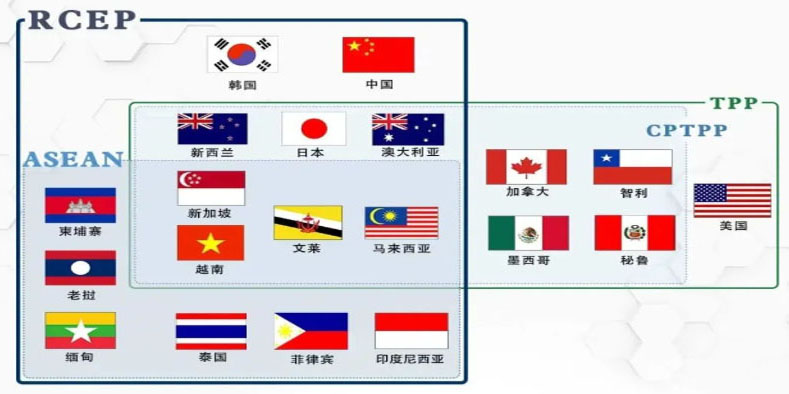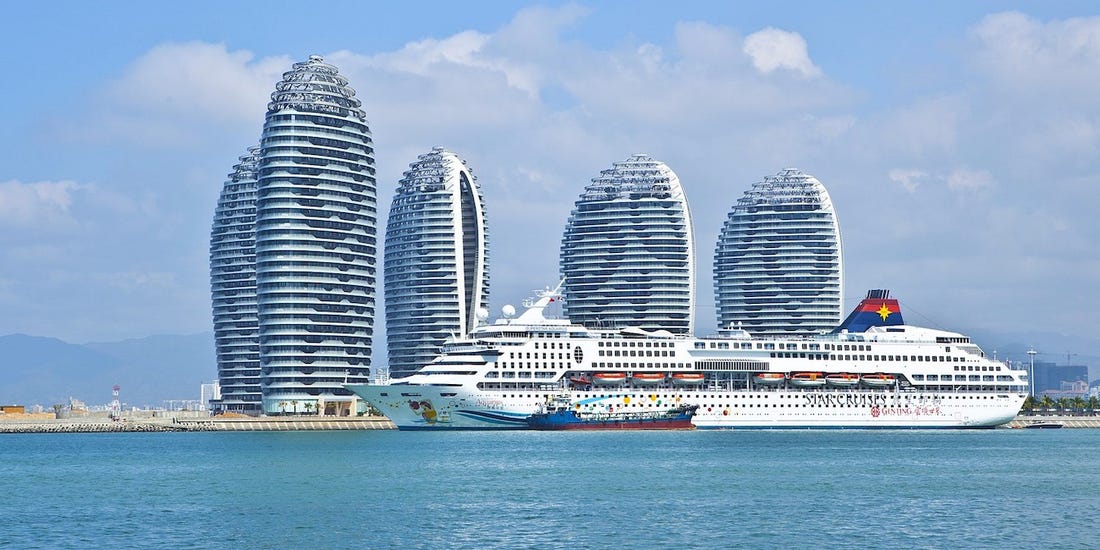Sajjad Ashraf, Former Adjunct Professor, National University of Singapore
Mar 15, 2022
America finally issued a broad statement on its Indo-Pacific strategy, predictably addressing concerns about China’s influence and spelling out its intention to play into its allies' favor. Meanwhile, ASEAN must respond to the latest development to retain their own autonomy and stability in what many are sure to see as rising tensions.
Cameron Johnson, A Partner at Tidwalwave Solutions
Mar 15, 2022
Asia’s RCEP - a China-led trade agreement - could set up a stable future for the continent despite today’s conflicts. Here’s how RCEP is re-shaping Asia’s destiny.

Brian Wong, Assistant Professor in Philosophy and Fellow at Centre on Contemporary China and the World, HKU and Rhodes Scholar
Feb 08, 2022
The RCEP is the largest free trade agreement in global history - but that doesn’t mean it’s going to be smooth sailing for China and its partners in Southeast Asia.

Zhang Monan, Deputy Director of Institute of American and European Studies, CCIEE
Jan 24, 2022
In a host of ways, the ,mega FTA, which spans two continents provides an antidote to rising global protectionism, unilateralism and the mindset of “my own interests first.”

Lucio Blanco Pitlo III, President of Philippine Association for Chinese Studies, and Research Fellow at Asia-Pacific Pathways to Progress Foundation
Apr 29, 2021
With the Regional Comprehensive Economic Partnership (RCEP) expected to take effect next year, China steps up building its first free trade port in Hainan. It shows how Beijing is preparing to capitalize and contribute to the success of the world’s largest free trade agreement (FTA).
Zhang Yun, Professor, School of International Relations, Nanjing University
Apr 17, 2021
China and the U.S. need to figure out intellectually what they are vying for. They do not have territorial disputes in the ordinary sense, nor are they in binary ideological opposition of the kind seen during the Cold War era.
Wu Zhenglong, Senior Research Fellow, China Foundation for International Studies
Dec 15, 2020
The country is confident that it will meet the emerging trade partnership’s high standards through reforms at home. But the U.S. and others may attempt to derail it through the “poison pill” clause of the USMCA.
Sajjad Ashraf, Former Adjunct Professor, National University of Singapore
Dec 08, 2020
The Regional Comprehensive Economic Partnership consists of all the major and middle Pacific Rim powers, save for one - the U.S. The assertiveness Asian countries are showing is indicative of the ongoing gravity shift in economic and political clout.

Zhou Xiaoming, Former Deputy Permanent Representative of China’s Mission to the UN Office in Geneva
Nov 30, 2020
The recently signed RCEP is adaptable to the circumstances of its participants and is not “one size fits all.” It’s a major breakthrough in bringing together the 10 ASEAN members and five key players in the region.

Liu Junhong, Researcher, Chinese Institute of Contemporary Int'l Relations
Nov 23, 2020
The agreement marks the emergence of constructive rules for the entire East Asia region. The parties no longer look to the Trans-Pacific Partnership, with its burdensome provisions, as a model template.
Back to Top

- China-US Focus builds trust and understanding between the U.S. and China through open dialogue among thought leaders.
- Our Offerings
- Topics
- Videos
- Podcasts
- Columnists
- Research Reports
- Focus Digest
- Stay Connected
-
Thanks for signing up!
- Get the latest stories from China-US Focus weekly.